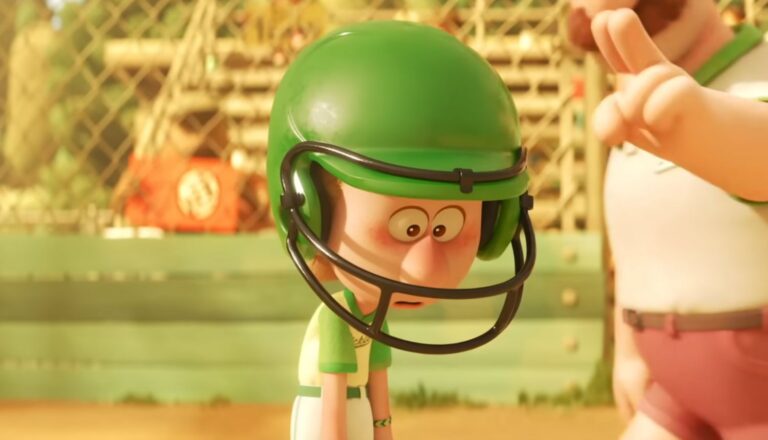
Zero Day
In Zero Day, America goes dark, and George must bring back the light—both literally and symbolically. But its content makes that task harder.

Sometime in the not-so-distant future, a killer virus scrubs the world clean. No more lawyers or politicians, no more perfume testers or rodeo clowns, no concerned parents reading through Plugged In’s vast archive of well-written TV reviews. There aren’t even any self-respecting zombies shambling about to liven things up. Everyone’s just … gone.
Well, almost everyone. If there weren’t at least a few people left, this Fox comedy would look more like a traffic camera feed during the Super Bowl than a fun TV show. So, as the title implies, Phil starts things out as the last man standing. And more than two years go by before he meets Carol, the last woman standing. Or so they think at the time as they decide they’re destined to be the new Adam and Eve with a duty to reboot the human race in the suburbs of Tucson. Because nothing says new beginnings like saguaro cacti.
It’s a shame they can’t stand each other.
Phil wonders why God, in His infinite love of a good cosmic jest, kept alive two people who are so very different. Phil’s the sort who sees an unpopulated world as an opportunity to build the world’s tallest Jenga tower and lounge in (while drinking from) a wading pool filled with margaritas. With no one else left in the world, he reasons that he can use a copy of the Constitution as a napkin and the backyard swimming pool as a toilet. Carol, meanwhile, is determined to preserve decency and civility by following all the old rules to the obsolete letter. If a faded but still red octagonal road sign read “STOP,” it means stop—even if there’s no one to stop for.
Repopulate the earth with Phil? “I’d rather eat a cat,” Carol squawks. And she loves cats. To pet, I would assume.
And so begins a story of two would-be sweethearts with nothing in common, thrust into each other’s arms via wacky circumstance—namely, the extermination of (most of) the rest of humankind.
But as Phil and Carol come to find out, they aren’t exactly the only people left on earth. They themselves now have twins, and Carol is pregnant once again. They’ve also found a few new friends along the way, like Gail and Melissa, Todd and Erica (who also are having a baby together) and Phil’s brother, Mike. And they’ve taken up residence in an estate they call the Zihuatanejo village.
We can say this for Fox’s The Last Man on Earth: It doesn’t feel like your standard sitcom.
The show’s bleak backdrop serves as an unusual premise for a comedy, admittedly, but in some ways it works. It can be funny and offer some interesting insights. While Carol may drive Phil crazy, she at least hasn’t given into despair. And while Phil may be an irresponsible slob, we also see him seriously exert himself on Carol’s behalf. They need each other, and not just because they’re so alone in the world. No matter how much the two get on each other’s nerves, Phil admits, “Having other people around is really what makes life worth living.”
And here’s another unexpected element: The show dips a toe into some surprisingly spiritual and moral themes. Phil talks to God. (Sometimes irreverently, you should know.) Carol expounds upon how they were “chosen” to repopulate the earth. And when Phil finally decides to get this repopulation thing on the road, Carol flatly refuses to have sex with him until they’re married.
“It means something to me, Phil!” she says.
What won’t mean anything quite so significant to viewers is the level of gross and gratuitous content this series sinks to, from foul language to sexual stuff to drunkenness to suicidal tendencies to wanton destruction of property.
If this comedy were the last TV show on earth …
Mike wants to leave to find other humans after he discovers heat signatures on a radar map. Phil will do anything to stop him. Melissa and Gail are sent out to look for provisions, but they get distracted along the way. Todd and Erica attempt to make decisions together concerning their soon-to-be-born baby.
God’s name is misused four times. The words “h—,” “d–k,” “d–n,” “b—s” and “frickin” are used a few times. Someone rearranges a phrase to say “gits and shiggles.” There are multiple sexual jokes and references (including words like “gonads” and a mock sexual interlude that includes a mannequin). A few dummies are in bikinis and one is naked. A razor drops, assumedly, on a man’s private area. People joke about urine and feces. A couple argue over painting a baby’s room so it doesn’t dictate “gender direction.” Two women shoot guns and drink alcohol. A man threatens to teach babies how to smoke and to run over another man’s head with a truck. A dog’s body is seen in pieces and attached to a robot.
“Alive in Tucson/The Elephant in the Room”
In this hour-long, two-part premiere, a lonely and increasingly nihilistic Phil trashes his habitat, then tries to kill himself. When he finds the preternaturally perky and persnickety Carol, their relationship gets off to a very rocky start. But when Carol shows signs of giving up on herself, Phil labors to pipe water down from a cistern and into her tomato garden. “It feels good to be so selfless,” he admits.
Phil crosses himself and talks to God. He asks some legitimate questions, but also crudely blames the Almighty for his masturbation habits. He accumulates stacks of porn magazines from abandoned convenience stores. And he hits on a mannequin, giving it a kiss. He runs around in his underwear and then pulls them down to expose himself to Carol. We see Phil relieving himself, revealing quite a lot of skin in the process. (Carol prepares to follow suit.) We see Phil’s soaked underwear. He wears Hugh Hefner’s Playboy Mansion robe—telling us that he washed it first. He rubs his face in Carol’s bra when he finds it hanging on a line and hallucinates that a beautiful woman is kissing him.
Carol threatens Phil with a gun. Phil steals Carol’s tomatoes, and we learn that he defecates in her garden. He guzzles beer and whiskey, and fills a wading pool with tequila. He and Carol drink wine. Much double entendre silliness is made of Phil painting faces on and then talking to “balls.” (One of his new “friends” he calls homophobic.) Swearing includes “d–n” (more than a dozen times) and “b–tard” (three or four times). God’s name is misused a few times, and we hear the euphemisms “freaking” and “jeez.”


Paul Asay has been part of the Plugged In staff since 2007, watching and reviewing roughly 15 quintillion movies and television shows. He’s written for a number of other publications, too, including Time, The Washington Post and Christianity Today. The author of several books, Paul loves to find spirituality in unexpected places, including popular entertainment, and he loves all things superhero. His vices include James Bond films, Mountain Dew and terrible B-grade movies. He’s married, has two children and a neurotic dog, runs marathons on occasion and hopes to someday own his own tuxedo. Feel free to follow him on Twitter @AsayPaul.

Kristin Smith joined the Plugged In team in 2017. Formerly a Spanish and English teacher, Kristin loves reading literature and eating authentic Mexican tacos. She and her husband, Eddy, love raising their children Judah and Selah. Kristin also has a deep affection for coffee, music, her dog (Cali) and cat (Aslan).

In Zero Day, America goes dark, and George must bring back the light—both literally and symbolically. But its content makes that task harder.

The title character is bigger and bulkier now than in the Tom Cruise movies. But so are the problems.

Win or Lose is far from a home run. Will it round the bases and slide into your home? It’ll be up to you to say whether this lands fair … or foul.

Twenty-five years after a plane crash in the wilderness, the survivors hide nefarious secrets about their troubled pasts in Showtime’s Yellowjackets.
Our weekly newsletter will keep you in the loop on the biggest things happening in entertainment and technology. Sign up today, and we’ll send you a chapter from the new Plugged In book, Becoming a Screen-Savvy Family, that focuses on how to implement a “screentime reset” in your family!